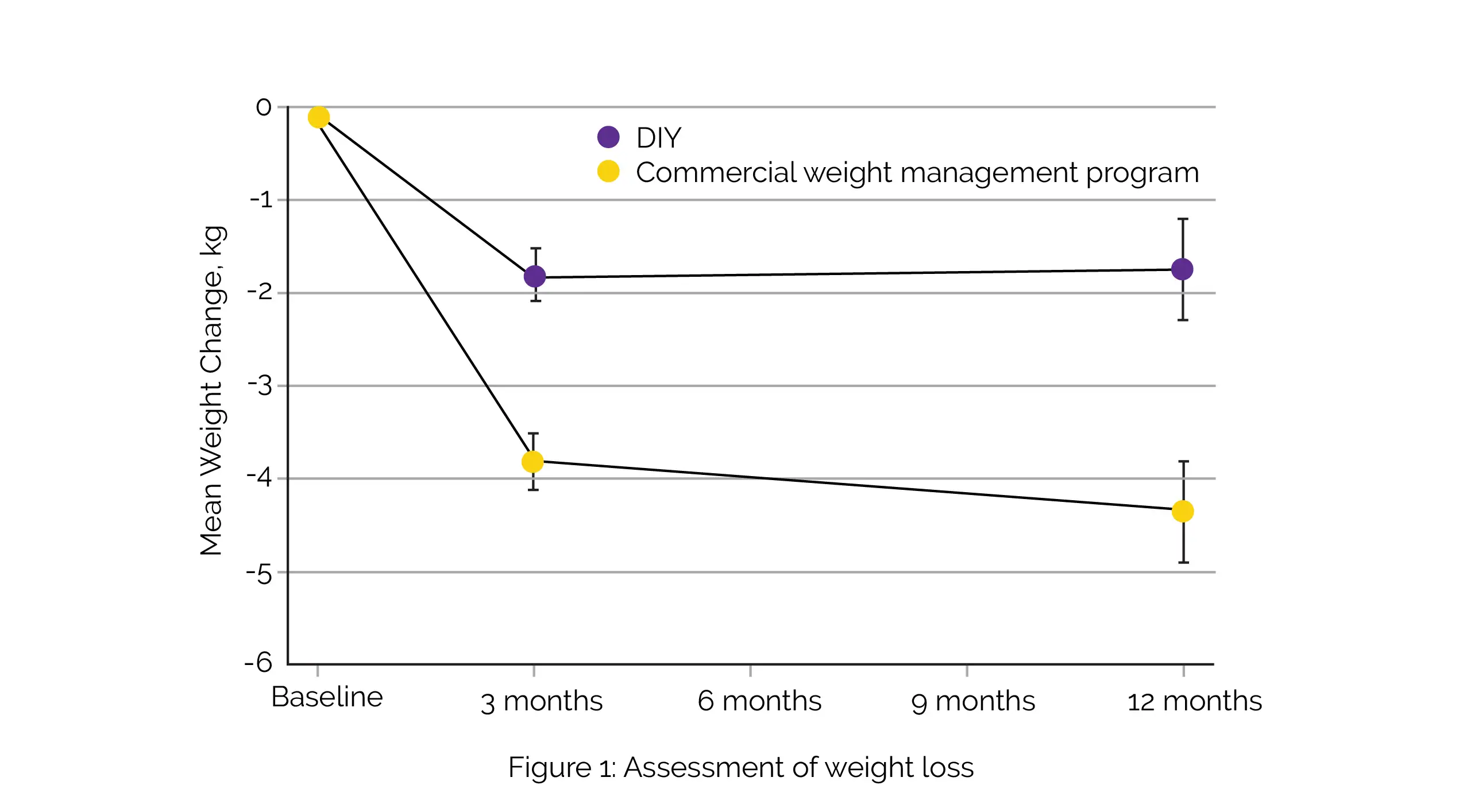Categories
Change Password!
Reset Password!


The purpose of a randomized clinical trial was to examine the variations in weight alteration between people who were randomly assigned to a do-it-yourself (DIY) strategy and people who were randomly assigned to a commercial weight management programme.
Adults who were randomly allocated to a commercial weight loss program reported greater weight loss and were more probable to lose 5% of their body weight at 3 and 12 months than adults on Do-It-Yourself approach.
The purpose of a randomized clinical trial was to examine the variations in weight alteration between people who were randomly assigned to a do-it-yourself (DIY) strategy and people who were randomly assigned to a commercial weight management programme.
A total of 373 people with a body mass index (BMI) of 25-45 and ranging in age from 18-75 years were enrolled. Interventions included a commercial weight-loss programme with lowered dietary self-monitoring requirements and suggestions for a range of DIY weight-loss methods. The difference in weight alterations between the two groups at three and twelve months were the major endpoints. Based on intention-to-treat, analyses were conducted.
The study involved 373 individuals (72.9% women (n = 272); mean [SD] BMI, 33.8 [5.2]; 20.6% participants (n = 77) 18 to 34 years of age, 19.8% participants (n = 74) 35 to 43 years of age, 22.0% participants (n = 82) 44 to 52 years of age, and 37.5% adults (n = 140) 53 to 75 years of age). Retention rates at 12 months were 95.7% (178 of 186) for the DIY group and 88.8% (166 of 187) for the commercial weight management programme group. Individuals in the commercial program lost a mean (SD) of -3.8 (4.1) kg, compared to -1.8 (3.7) kg for the DIY group at three months.
The mean (SD) weight loss in the individuals in commercial programme was -4.4 (7.3) kg, compared to -1.7 (7.3) kg for the DIY group at 12 months. At three months and 12 months, the mean difference between the groups was -2.0 kg (97.5% CI, -2.9 to -1.1 kg) and -2.6 kg (97.5% CI, -4.3 to -0.8 kg), respectively (Figure 1).

At both 3 months (40.7% [72 of 177] vs 18.6% [34 of 183]) and 12 months (42.8% [71 of 166] vs 24.7% [44 of 178]), more people in the commercial program group than in the DIY group lost 5% of their body weight.
Statistically meaningful weight reduction was achieved by a commercial weight management program with minimal dietary self-monitoring, which may partially address the requirements for evidence-based strategies outside of clinic settings.
JAMA Network Open
Efficacy of a Commercial Weight Management Program Compared With a Do-It-Yourself Approach: A Randomized Clinical Trial
Deborah F. Tate et al.
Comments (0)